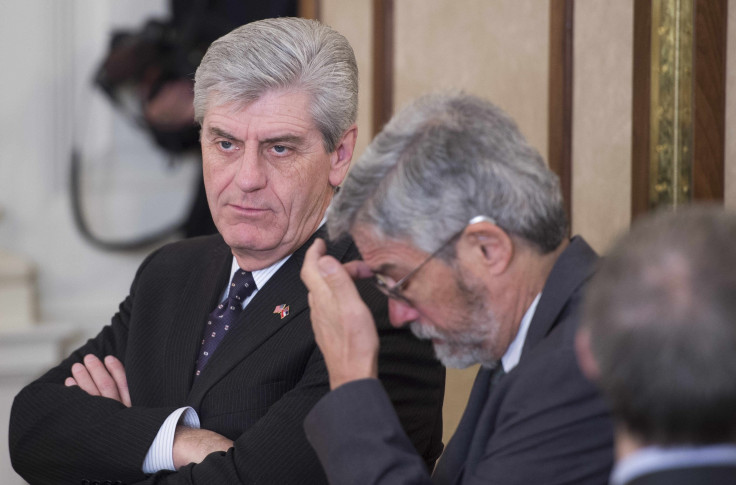Mississippi Anti-LGBT Law Signed By Governor: 5 Things To Know About The Controversial Bill

Mississippi Gov. Phil Bryant signed a law Tuesday allowing public and private businesses to refuse service to gay couples based on the employers' religious beliefs.
The "Protecting Freedom of Conscience from Government Discrimination Act" was signed by Bryant after it was approved by the state Senate and House of Representatives. Portrayed by Republican lawmakers as a shield for religious liberty, the law is a major setback for LGBT rights in the state, such as they are.
The bill's signing comes a week after Georgia Gov. Nathan Deal vetoed a similar bill that would have let businesses and individuals withhold their services from gay, lesbian, bisexual and transgender people based on religious beliefs.
Bryant released a statement upon signing the bill asserting that it is "designed in the most targeted manner possible to prevent government interference in the lives of the people from which all power of the state is derived." However, the bill, which has been condemned by the American Civil Liberties Union, appears to leave LGBT people in Mississippi vulnerable to discrimination in many situations.
I have signed House Bill 1523. Full statement: pic.twitter.com/00DbgQADFt
— Phil Bryant (@PhilBryantMS) April 5, 2016
Here are five key provisions in Mississippi's "Protecting Freedom of Conscience from Government Discrimination Act":
1. Religious Liberty. The bill is designed to protect the religious liberties of individuals, employers and religious institutions. The bill specifies the "sincerely held" religious beliefs that it defends, including that "marriage is or should be recognized as the union of one man and one woman," that the only appropriate sexual relationships exist in a marriage between one man and one woman, and that gender is defined by the "immutable biological sex" determined anatomically at birth.
2. Employment and Housing. The bill allows religious organizations to make decisions about "whether or not to hire, terminate or discipline an individual whose conduct or religious beliefs are inconsistent with those of the religious organization." Additionally, it allows any individual to deny housing, property rental or even occupancy of a "dwelling or any other housing" based on the owner's religious beliefs.
3. Foster Care. The bill allows any "religious organization that advertises, provides or facilitates adoption or foster care" to decline service to individuals who are gay, transgender or otherwise conflict with the aforementioned religious beliefs. It also allows a person granted custody of a foster child or adopted child to "instruct or raise" that child in accordance with those beliefs, which could be interpreted the state granting state-approved foster parents a free pass to teach bias against LGBT people.
4. Gay Marriage. The bill allows state officials to decline to personally issue marriage licenses to LGBT couples in accordance with their religious beliefs as long as the official takes "all necessary steps to ensure that the authorization and licensing of any legally valid marriage is not impeded or delayed as a result of any recusal."
More alarming to opponents is a provision allowing any individual to decline to provide a number of services for the purpose of any marriage not in accordance to that person's religious beliefs. The wide range of services highlighted in the bill includes, "photography, poetry, videography, disc-jockey services, wedding planning, printing, publishing or similar marriage-related goods or services, floral arrangements, dress making, cake or pastry artistry, assembly-hall or other wedding-venue rentals, limousine or other car-service rentals, jewelry sales and services, or similar marriage-related services, accommodations, facilities or goods."
5. Transgender Discrimination. The bill allows schools and businesses to set up "sex-specific standards or policies concerning employee or student dress or grooming, or concerning access to restrooms, spas, baths, showers, dressing rooms, locker rooms, or other intimate facilities or settings." It also allows individuals to deny counseling, surgery, fertility services and other treatments related to transgender issues according to that individual's religious beliefs.
© Copyright IBTimes 2024. All rights reserved.












